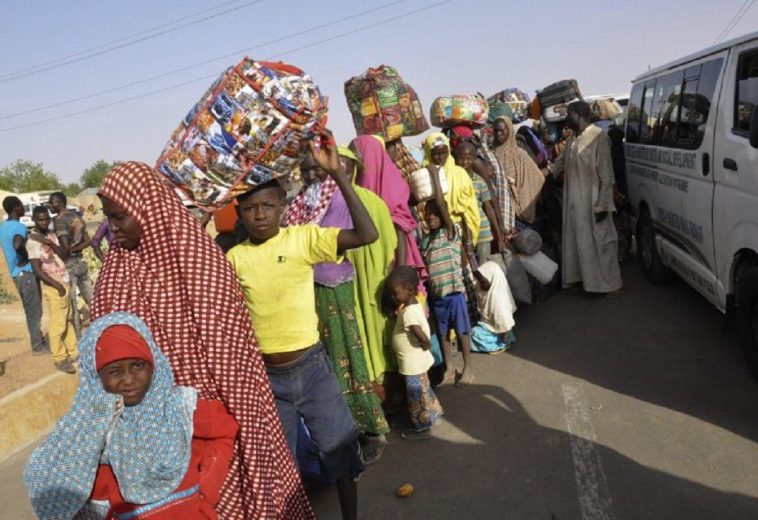Africa reflects as the world commemorates the World Day Against Trafficking in Persons—an important day to chew over global and regional efforts to combat human trafficking. As well as persistent challenges faced in addressing this grave issue.
What are the Numbers?
The UNODC reports that in 2023, Africa accounted for 23% of globally identified trafficking victims, with a substantial number being minors.
According to the 2023 Global Report on Trafficking in Persons by the United Nations Office on Drugs and Crime (UNODC), Africa has seen a 15% increase in trafficking cases from 2018 to 2023. The continent remains a major source, transit, and destination region for trafficked individuals.
The report reveals that in 2023, approximately 30% of trafficking victims in Africa were children, with a significant proportion trafficked for forced labour and sexual exploitation. This alarming trend highlights the need for continued and intensified efforts to prevent trafficking, protect victims, and prosecute traffickers.
Nigeria’s National Agency for the Prohibition of Trafficking in Persons (NAPTIP) recorded 1076 cases of trafficking in persons in 2018, a decrease from 1032 cases in 2020. This trend is reflected globally, with a 36% drop in cross-border trafficking victims detected in Sub-Saharan Africa between 2019 and 2020.
The COVID-19 pandemic has also had a significant impact on anti-trafficking efforts, with a global slowdown in convictions resulting in a 27% reduction in convictions worldwide and a 6% drop in Sub-Saharan Africa. Nigeria’s conviction rate, however, remained relatively stable, with 50 convictions in 2018, 25 in 2019, and 51 in 2020.
Despite the challenges, countries in Sub-Saharan Africa and South Asia are still detecting significant numbers of victims. In Nigeria, the majority of repatriated victims came from Benin, Lebanon, Oman, Mali, and Togo. Most victims detected in Sub-Saharan Africa are either citizens of the country of detection or citizens of other Sub-Saharan countries.
Victims from Sub-Saharan Africa are detected in the largest number of countries globally. The majority of trafficked victims from the region are detected outside the region, primarily in North Africa, the Middle East, and Europe.
Overall, while progress has been made in addressing human trafficking in Nigeria and globally, there is still much work to be done to combat this serious issue. Efforts to detect and prosecute traffickers must continue to evolve and adapt to new challenges and trends.
Progress Made
The African Union (AU) has developed a comprehensive strategy to combat human trafficking and smuggling of migrants, which was launched in 2021. The strategy focuses on improving regional cooperation and capacity-building through a network of member states that share best practices and collaborate on anti-trafficking measures. Additionally, the strategy aims to strengthen legal frameworks and victim support systems across the continent.
Ghana has taken concrete steps to support trafficking survivors, establishing shelters and rehabilitation centres that provide psychological support, education, and vocational training. The government has collaborated with NGOs to ensure comprehensive care for victims. In South Africa, the government has increased funding for victim support services, including shelters and legal aid, to help victims rebuild their lives. The country has also implemented public awareness campaigns to educate citizens about the realities of human trafficking.
Both Ghana and South Africa demonstrate the importance of providing a supportive environment for trafficking survivors. By establishing shelters and rehabilitation centres, these countries are helping to empower victims to regain control over their lives. The African Union’s strategy and individual country efforts highlight the need for a multifaceted approach to combat human trafficking, including regional cooperation, legal frameworks, and victim support services.
In Nigeria, The Trafficking in Persons (Prohibition) Enforcement and Administration Act, established in 2015, has been pivotal. The National Agency for the Prohibition of Trafficking in Persons (NAPTIP) has reported over 800 convictions since the law’s enactment, showcasing a strong commitment to enforcement.
As the world observe World Day Against Trafficking in Persons, it is vital to recognize the progress African nations have made while acknowledging the ongoing challenges. There is a need to Strengthen regional cooperation, improving data collection, and enhancing victim support are crucial to advancing the fight against human trafficking. Continued commitment from governments, NGOs, and international bodies is essential to achieving meaningful and lasting change.




